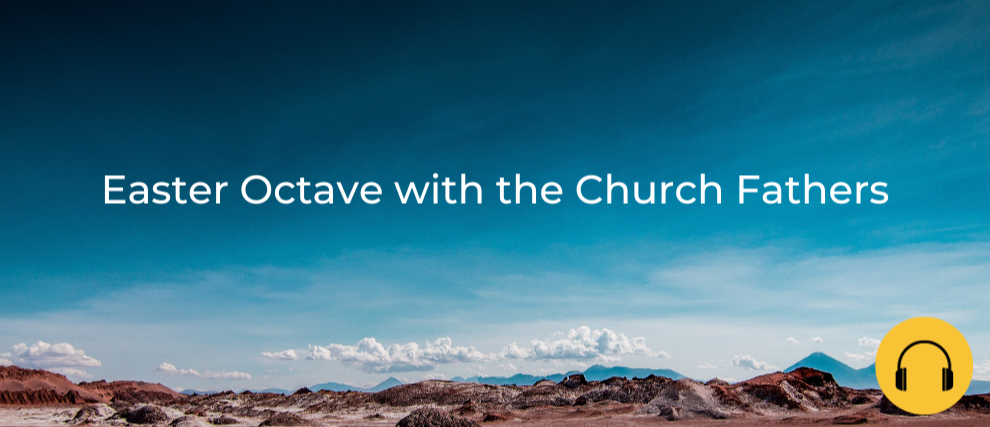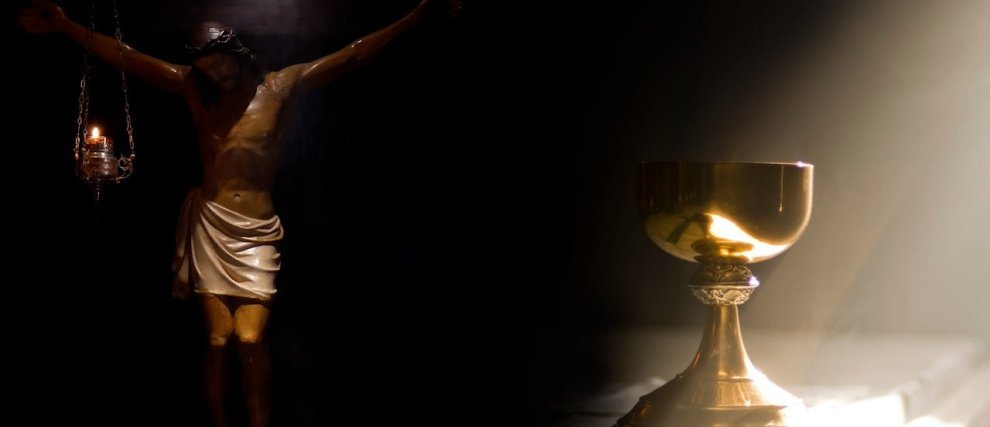Easter
Solemnity of Solemnities, the feast of Easter celebrates the resurrection of Christ, heart of the entire Christian mystery and summit of the liturgical year! Indeed, for Christians, the resurrection is the culminating truth of their faith in Christ, and it is on this truth that the whole mission of the Catholic Church is based: “... if Christ has not been raised, our preaching is useless and so is your faith.” (1 Corinthians 15:14)
Discover the meaning and origin of the feast of Easter; learn how Christians celebrate Easter, and what the Christian traditions are surrounding Easter Sunday!
Easter: Meaning and Christian Origin
What do Christians Celebrate at Easter?
The feast of Easter is the oldest and most important of the Christian feasts, because it celebrates the resurrection of Christ and thus his definitive victory over death and sin.
The resurrection of Christ is the central element of the Christian faith, for it is the fulfillment of God's promises to his people. The Catechism of the Catholic Church states concerning the death of Jesus: “The death of Christ is both the paschal sacrifice which accomplishes the definitive redemption of man through the Lamb who bears the sin of the world and the sacrifice of the New Covenant which brings man back into communion with God” (CCC, no. 613).
The account of the resurrection of Christ is described in the Gospels, which recount the chronology of the events that followed the death of Jesus. Thus, the four evangelists describe how the apostles and women found the empty tomb and trace the various apparitions of Jesus until his Ascension, forty days later. These stories punctuate the entire Eastertide and nourish the faith of the faithful by leading them to discover little by little the presence of the Risen One at their side!
What is the origin of the feast of Easter?
The feast of Easter has its origin in the Jewish feast of Passover - called Pesach in Hebrew - which commemorated the liberation of the Jewish people from their servitude in Egypt.
The etymological origin of the Hebrew word, meaning "passage", thus recalls two great events recounted in the Old Testament: the passage of Yahweh at the entrance to the houses of the Egyptians, striking them with one of the seven plagues of Egypt; and the passage of the Red Sea by the Hebrews, while they were hunted by the soldiers of the Pharaoh.
Moreover, the Jewish feast of the Passover is linked to that of the feast of unleavened bread: an agricultural feast that celebrated the beginning of the harvest and the offering to God of the first seeds. The Jewish ritual in the time of Jesus was not to eat leavened bread during the seven days following Passover and to immolate a lamb. We find this reference in the bible: "on the tenth day of this month each man is to take a lamb for his family, one for each household. [...]. That same night they are to eat the meat roasted over the fire, along with bitter herbs, and bread made without yeast... Eat it in haste; it is the Lord’s Passover." (Book of Exodus, Chapter 12)
Thus, the feast of Pesach celebrates the victory of life, the transition from slavery to freedom! Today, for Christians, the symbolism is still the same: Easter is the passage from death to life, for by his death and resurrection, Christ accomplishes for us what the exit from Egypt foreshadowed: the entry into a new life and the New Covenant between God and Men! Christ is "the Lamb of God" (John 1:29) and the true "Bread of life" (John 6:35).
The Feast of Easter: Celebration and Traditions
Liturgical Calendar of Easter Solemnity
The solemnity of Easter takes place at the end of a specific liturgical time, Lent, a time of penance and spiritual preparation leading Christians to commemorate the passion of Jesus and his resurrection!
Lent, lasting forty days, begins with Ash Wednesday and ends with the celebration of Holy Week, punctuated by the great celebrations of Palm Sunday, Good Thursday and Good Friday. Christians thus follow Jesus on his path to the cross, while already placing themselves in the expectation and hope of his glorious resurrection!
The feast of Easter begins with the Easter Vigil, on Holy Saturday; then, it is celebrated on Easter Sunday, and throughout the Eastertide, which begins with the Easter octave and continues for fifty days until the feast of Pentecost. If in the past, the full week of the Easter octave was considered a holiday, while today only Easter Monday remains a public holiday.
Finally, if the date of Easter varies each year, because it depends on the lunar cycle: the feast is celebrated on the first Sunday following the full moon after the spring equinox.
The Celebration of Easter
The feast of Easter, having begun with the Easter Vigil, continues on Easter Sunday with the Mass of the Resurrection. This celebration, whose liturgy is characterized by the white and golden color, invites Christians to a true spiritual renewal, as we hear in the antiphon of the Mass: “Today, God our Father, you open eternal life to us through the victory of your Son over death, and we celebrate his resurrection. May your Spirit make us new men so that we may resurrect with Christ in the light of life."
All the texts read on Easter Sunday are an invitation to enter into Easter joy: "This is the day that the Lord has made, may it be for us a day of feast and joy" we sing in Psalm 117! We also repeatedly sing Hallelujah, which manifests our cries of praise and joy.
We read either the Gospel of Saint John, which traces the discovery of the empty tomb by two disciples of Christ (John 20:1-9); or the Gospel of Saint Luke, as Jesus manifests himself to the disciples on the road to Emmaus (Luke 24:13 -35).
Finally, on the occasion of the feast of Easter, the Pope pronounces the urbi et orbi blessing characterized by its universal scope. It is also accompanied by a plenary indulgence.
Christian Traditions Surrounding Easter
Many Christian traditions surround the feast of Easter, the most popular of which is that of Easter eggs! The egg, a symbol of life and renewal, naturally found its place in the Easter tradition in the 12th and 13th centuries. It comes from the fact that, during the Lenten period, it was forbidden to consume eggs. On Easter Sunday, they were then found in large quantities, and people then became accustomed to offering decorated eggs to those around them.
Then, in the 18th century, chocolate Easter eggs appeared, which gave rise to other popular traditions: that of Easter bells that bring eggs from Rome, or that of the Easter bunny.
Another Easter tradition concerns the Easter meal with the tasting of the Easter lamb, recalling the Jewish tradition, but above all symbolizing "the lamb of God," Jesus, who gives his life for all!
Prayer on the Day of the Easter
“Jesus, you are the true Lamb who took away the sin of the world. By dying, you have destroyed our death. By resurrecting, you give us life again. By your resurrection on Easter morning, you open us to eternal life. May the Holy Spirit renew the faith, hope and charity of our family. Grant each of us to be faithful with all our life to his baptism which passes from death to life. May our hearts share the same faith and, in everyday life, the same love. Remove sin from us by reconciling us with you so that we may share perfect freedom with all the saints. We who are responsible for proclaiming your wonders, we want to express with all our life the joy of Easter that we celebrate now. Allow us to welcome with joy the fruits of the resurrection. May our family radiate the presence of Christ, the conqueror of sadness, tears and sin. Amen! Hallelujah!”
Prayer by Ludovic Lécuru
Pray with Hozana during the feast of Easter!
A day of joy and rejoicing, the day of Easter is the one that has changed our history, because on this day, Christ is risen! In fact, he paid for us and opens us to a new life! The question of the angels on the morning of Easter, "Why do you seek the living among the dead?" (Luke 24:5) calls us to meet Jesus, and to become his beloved disciples!
So, discover Hozana's prayer offerings to follow the resurrected Christ!
“Come, follow me!” (John 19:21). Respond to the call of Christ, follow the resurrected, and deepen your relationship with Jesus with
. by meditating every day on the Word of God in the Gospel.Deepen your relationship with Jesus by following
!
